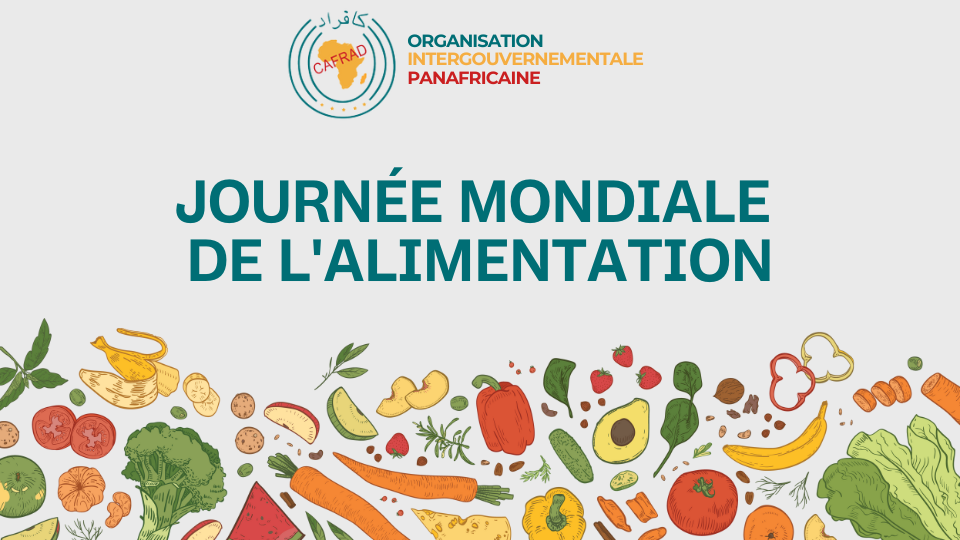World Food Day: Nourishing the Future, Today

Every year on October 16, the world celebrates World Food Day (WFD). Established in 1979 by the Food and Agriculture Organization (FAO) of the United Nations, this day aims to raise awareness about the fight against hunger, promote healthy and sustainable diets, and emphasize the importance of ensuring food security for all.
A Global Challenge
According to the FAO, more than 700 million people worldwide still suffer from hunger, while nearly 2 billion are overweight or obese. This contradiction highlights the alarming imbalances in our food systems: waste, overconsumption, unequal access, and unsustainable agricultural practices.
World Food Day is therefore a key moment for reflection on our production and consumption patterns and for encouraging a deep transformation toward fairer, more sustainable systems that respect the planet.
The 2025 Theme: “Water is Life, Water is Food”
This year’s theme highlights the crucial role of water in food production. From growing cereals to raising livestock and fishing, water lies at the heart of agriculture and global food security.
In the face of climate change, pollution, and overexploitation of water resources, it is urgent to adopt sustainable water management practices to ensure food availability for current and future generations.
Concrete Actions Around the World
Across the globe, local and international initiatives are being carried out to mark the day: awareness campaigns, food drives, educational workshops, conferences, and forums bringing together farmers, researchers, and policymakers to address global food issues.
Everyone can contribute: reducing food waste, choosing local and seasonal products, or supporting sustainable agriculture are all meaningful actions.
A Call for Solidarity and Responsibility
World Food Day is not just symbolic—it is a reminder of global solidarity. Ensuring everyone has access to sufficient, healthy, and nutritious food is both a fundamental right and a collective responsibility.
By rethinking our relationship with food and nature, we contribute to building a fairer, healthier, and more sustainable future.
CAFRAD’s Role on World Food Day
As part of its mission to support African states in sustainable development and public administration, the African Training and Research Centre in Administration for Development (CAFRAD) intends to engage in multiple ways around World Food Day:
- Training Public Officials and Decision-Makers
CAFRAD plans to organize training workshops and modules for managers and senior officials in agriculture, water, environment, and rural planning, focusing on: food security, sustainable water management, agroecology; and resilient policy planning in the face of climate change
- Conducting Studies and Research
CAFRAD can carry out diagnostic studies on national and regional food systems, including: Agricultural value chain analyses, gaps in food distribution systems, and post-harvest losses and storage infrastructure
These studies would support the design of evidence-based public policies and local interventions.
- Advising Member States
As a leading center for research and training, CAFRAD can support African governments in developing or implementing sustainable agricultural and food policies, especially within the framework of the Sustainable Development Goals (SDGs)—with a focus on SDG 2: Zero Hunger.
- Promoting Responsible Governance
CAFRAD advocates for transparent, inclusive, and participatory food governance, involving: rural communities, small-scale producers, and women and youth
It also supports the development of monitoring and evaluation mechanisms in public administrations to ensure accountability and results-based management.
- Facilitating the Exchange of Good Practices
CAFRAD acts as a platform for inter-African exchange to share successful experiences in food security, nutrition, water management, promote South-South cooperation, facilitate knowledge and technology transfer between countries
- Raising Awareness and Advocacy
While not its primary role, CAFRAD could also support or organize awareness campaigns for World Food Day, to highlight the importance of good governance in food systems, the public sector’s role in achieving food security and the need for sustainable management of natural resources
- Monitoring and Evaluation
CAFRAD can assist states in tracking progress on their food and nutrition policies by developing indicators for food security, nutrition, water access, and more. This helps governments adjust strategies and improve impact.
CAFRAD: Working Daily for Africa’s Development and Unity
The African continent has immense potential—fertile lands, water resources, and human capital. Yet, unlocking this potential requires visionary leadership, strong institutions, and coordinated action.
CAFRAD continues to play a key role in equipping African leaders and public institutions with the skills and tools they need to implement policies that transform agriculture, promote food sovereignty, and ensure a better future for all.
Support CAFRAD. Support Africa’s future.




